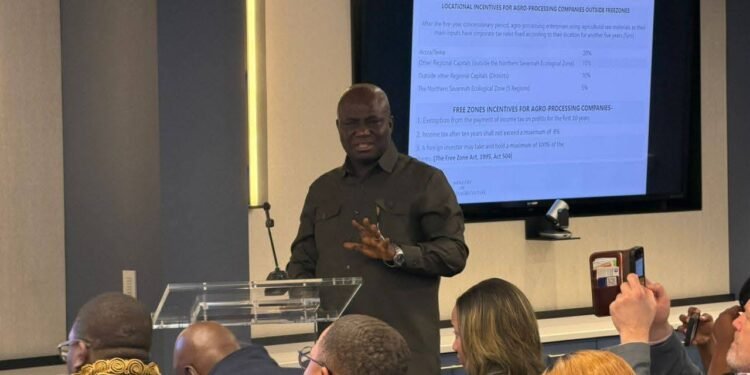Tax consultant, Francis Timore- Boi, has expressed the need for the Ghana Revenue Authority (GRA) to educate traders extensively on tax compliance.
According to him, GRA must bridge the compliance gap within the informal sector.
Reacting to the allegations on intimidation and disrespect by the Abossey Okai Spare Parts Dealers Association, especially with a given two-week ultimatum to government to stop GRA from deploying its officers to shops in a tax-compliance and invigilation exercise, Mr Timore-Boi stated that the leadership of the association must understand that GRA is simply enforcing the law.
In light of this, he noted that demonstration will not change the law overnight.
“If there’s anything that we need to do, possibly make proposals to parliament to change it. We can only work together and where the traders do not understand something, they should engage the GRA to understand. I will also call on the GRA to sometimes also engage most of the traders.
“Some people do not understand the tax laws we have in Ghana, so if they see you in their offices, they think that you’re intimidating them… So, more education needs to be done, if we do this, we all recognize that tax laws must be complied with…”
Francis Timore- Boi
Furthermore, Mr Timore-Boi emphasized that the law is clear that traders are supposed to issue a VAT invoice. However, he highlighted that the problem has to do with the fact that the informal sector is more “unstructured, hidden and they are invisible”.
“So, sometimes, you need to be a little bit aggressive to ensure that the law that parliament has passed is enforced. Globally, tax administrators have difficulties in enforcing tax laws in an informal sector. But I believe that if GRA does more of education and engagement, and possibly exercising more professionalism, we can get the informal sector being compliant with the tax laws that we have in Ghana.”
Francis Timore- Boi
Amicable resolution of tension between GRA and traders
Moreover, Mr Timore-Boi indicated that traders and the GRA can amicably resolve their differences. To this end, he called on GRA officials to be more professional in their dealings.
“Again, taxes are what is due the state, GRA did not pass the law. In fact, if you’re operating in an environment where the economy is very informal, ensuring tax compliance is very difficult, so it gets to a point where the officer will have to be more violent and also exercise some discretion.
“But also in this same instance, if GRA officials are able to be more professional, they can do their work and proceed with that. I don’t think that what the traders are saying, including the protest will solve the problem.”
Francis Timore- Boi
Touching on GRA’s accusation of traders on misclassification of goods, the tax consultant reckoned that the “law gives GRA the chance to slap 100% of the tax shortfall” on those who flout the law. He explained that if a trader misclassifies the item and GRA’s risk assessment picks it up, the Authority is at liberty to slap the penalty on the person.
“So, if someone is bringing chicken and the person says they are shoes and you identify it, just impose the law and you’re free. GRA has also put in place some risk mechanisms at the port – when your container arrives at the port, they may scan it and if they are doing that, the container can either be red. If it’s red, they have to do physical examination, if it is green, it means that your transactions are clean… For me, I think this is an easy task for GRA if someone misclassifies… “
Francis Timore- Boi
READ ALSO: Ablakwa’s ‘Heaven Scandal’ Exposes Akufo-Addo’s Secret Land Grab























